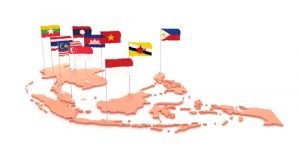
U.S. Rep. Carol Miller (R-WV) helped lead a bipartisan contingent of 10 other lawmakers in urging the U.S. Trade Representative (USTR) to swiftly negotiate market access provisions through trade agreements with America’s friends and partners in the Indo-Pacific.
According to an April 8 letter the lawmakers sent to USTR Katherine Tai, Rep. Miller and her colleagues — who also included U.S. Reps. Brad Wenstrup (R-OH), Ann Wagner (R-MO), Darin LaHood (R-IL), Blake Moore (R-UT), Young Kim (R-CA), and Stephanie Murphy (D-FL) — pointed out that the Indo-Pacific accounts for $1.75 trillion in annual trade with the U.S., receives 30 percent of U.S. goods and services exports, and supports millions of American jobs.
Specifically, the Member States of the Association of Southeast Asian Nations (ASEAN) constitute America’s second-largest export destination in Asia and U.S.-ASEAN trade is expected to grow by 4 percent to 5 percent annually. “These countries offer major opportunities for American-made goods and services,” wrote the members.
However, because the U.S. withdrew from the Trans-Pacific Partnership agreement in 2017 that led Asian governments to pursue several regional and bilateral preferential trade agreements without the United States, America’s limited participation in agreements or frameworks involving Indo-Pacific nations means that the next generation of commercial rules and standards governing trade with Asia are increasingly being written without American input, Rep. Miller and her colleagues wrote.
Additionally, American-made goods and services are at a competitive disadvantage because tariffs on U.S. exports to the Indo-Pacific are relatively higher than tariffs on U.S. competitors’ exports to the region, according to their letter.
“As you… work with like-minded trade partners on items of shared interest in the Indo-Pacific Economic Framework, it is critically important that you protect the competitiveness of American products in this region by ensuring that these trends are reversed,” wrote the lawmakers. “To this end, we urge you to work to secure enhanced market access for American exporters in ASEAN Member States.”



